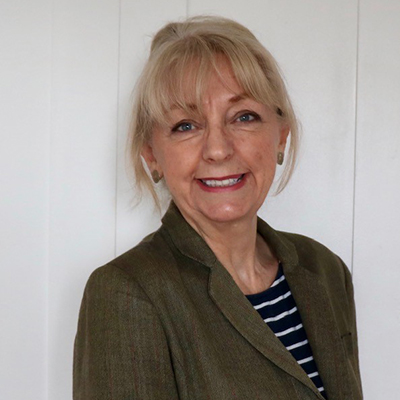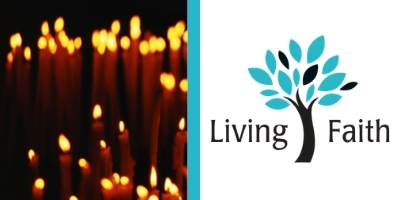In the third of our Advent series, ‘Light in the darkness’, Eley McAinsh suggests that we should embrace the darkness, not shun it…
29 November 2020
Last week Gordon Giles, author of BRF’s 2020 Advent book, At Home in Advent, wrote of the ‘spring of darkness, the premature Advent’ we’ve all endured since early this year:
We have been living Advent not as a spiritual exercise, but as a living, breathing, dying, suffocating real life-and-death phenomenon.
Darkness is deeply associated with danger, threat and fear – the unknown lurking in the shadows. So pervasive is our present longing for hope and light that even the Today programme on BBC Radio 4 is running a regular feature called ‘Moments of Light’. Well-known contributors are invited to share the little things that bring light to their dark and fearful days. Earlier this month, it was the Welsh singer and broadcaster Cerys Matthews’ turn. She described in her soft Welsh lilt how a particular music track from Senegal lit up her day, ‘despite everything’, and ‘brought waves of warmth and hope’.
Reflecting on reality
Gordon Giles shares our weariness and impatience, our urge to run headlong towards the twinkling lights of Christmas, but argued compellingly for patience and penitence, the traditional disciplines of this increasingly countercultural season. He encouraged us not to shun the darkness of Advent but to embrace it:
We need Advent more than ever. For reality must be reflected upon and we must not sleepwalk through these challenging, precious, profound times. There is much to learn and upon which to reflect.
Health and wholeness
‘Embrace the darkness’ might sound like bitter medicine, especially when we’re all feeling so fragile, but physiologically, psychologically and spiritually, our health and wholeness depend on it.
Biologists increasingly recognise the dangers of overriding our natural bodily rhythms and subjecting them to more light than is good for them. ‘We toy with our body clocks at severe risk to our wellbeing,’ wrote Hugh Wilson in The Guardian.
It was C.G. Jung, one of the founders of modern psychology, who alerted us to the power of the ‘shadow’ in our psyches: the unconscious, unknown dark side of our personality. Both individually and collectively, this shadow can be dangerous and destructive until acknowledged, explored and integrated.
As we confront the repressed and denied aspects of our personalities and come to terms with our darker selves, we see ourselves more clearly. We become more grounded, human and whole. When we can accept your own darker parts, it is easier to accept the shadow in others.
As we come to terms with our darker selves, we become more grounded, human and whole.
Spiritually, the Christian mystics of every age subvert the easy classification of light as good, safe and true, and dark as evil, dangerous and false. There is a profound and ancient strand in Christian tradition that invites us not to avoid the darkness but to embrace it; to wait attentively in the shadows and open ourselves to the unknown and unknowable.
The cloud of unknowing
The 14th-century author of The Cloud of Unknowing writes:
In the beginning, it is usual to feel nothing but a kind of darkness about your mind, or as it were, a cloud of unknowing. You will seem to know nothing and to feel nothing except a naked intent towards God in the depths of your being. Try as you might, this darkness and this cloud will remain between you and your God. You will feel frustrated, for your mind will be unable to grasp him and your heart will not relish the delight of his love. But learn to be at home in this darkness. Return to it as often as you can, letting your spirit cry out to him whom you love, for if, in this life, you hope to feel and see God as he is in himself it must be within this darkness and this cloud.
‘Learn to be at home in this darkness,’ says the author of The Cloud of Unknowing in the 14th century.
Do not ‘sleepwalk through these challenging, precious, profound times,’ urges Gordon Giles in the 21st century.
These exhortations go together. What better time to practise this way of being than in this particular season of Advent, as the daylight hours fade and rules and restrictions encroach on every aspect of our lives.
Learning to walk in the dark
Barbara Brown Taylor, the popular American writer and professor of religion, writes in her bestselling Learning to Walk in the Dark:
I have learned things in the dark that I could never have learned in the light, things that have saved my life over and over again, so that there is really one logical conclusion. I need darkness as much as I need light.
Her book draws deeply on her own Christian experience, on the witness of scripture and on the wisdom of centuries of Christian mystics. She concludes:
Among the treasures of darkness I have dug up along the way are a new collection of Bible stories that all happen after dark, a new set of teachers who know their way around the dark, a deeper reverence for the cloud of unknowing, a greater ability to abide in God’s absence, and – by far the more valuable of all – a fresh baptism in the truth that loss is the way of life. The last one is hard to trust, which is why I need to keep walking in the dark.

Eley McAinsh is a member of BRF’s marketing and communications team and the editor of Bible Reflections for Older People.

Still time to order your Advent resources
BRF offers a range of Advent resources for every taste, including:
